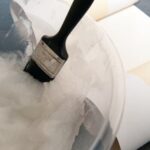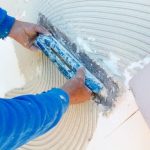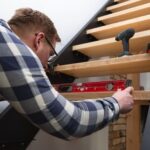Home inspections play a crucial role in the real estate industry as they provide potential buyers with valuable information about the condition of a property. With the growing recognition of their significance, the demand for licensing in home inspections has become increasingly prevalent.
Licensed home inspectors are professionals who have met certain criteria and standards set by regulatory bodies, ensuring competence and accountability in their work. This article will explore whether licensing truly improves home inspections and why there is a rising need for regulation in this field.
Buying a home is one of the most significant investments individuals make in their lifetime. It is essential to have a thorough understanding of the property’s condition before making such a significant financial commitment. Home inspections serve this purpose by assessing various aspects of a house, including its structural integrity, electrical systems, plumbing, heating, ventilation, and air conditioning (HVAC), among others.
In recent years, there has been a growing concern among consumers regarding the quality and reliability of home inspections. Due to instances of improper or inadequate inspections leading to unforeseen issues after purchasing properties, there is an increasing call for licensing in this field. Licensing serves as a mechanism to ensure that individuals conducting these inspections possess the necessary knowledge and skills to identify potential problems accurately.
As more people recognize the importance of having qualified professionals conduct home inspections, licensing becomes crucial in establishing credibility and trust between inspectors and homeowners or prospective buyers. With proper licensure comes improved professionalism within the industry, reassuring consumers that they are hiring competent individuals who adhere to specific standards and regulations.
What is licensing in the context of home inspections
Licensing in the context of home inspections refers to the requirement for individuals to obtain a license from a regulatory body in order to legally perform home inspections. This process typically involves a series of steps and criteria that must be met to demonstrate competence and adherence to industry standards.
To become licensed as a home inspector, individuals typically need to complete a predetermined amount of education and training, pass an exam, and fulfill other requirements established by the licensing body. The specific requirements vary by jurisdiction, but they are generally designed to ensure that inspectors possess the necessary knowledge and skills to conduct thorough and accurate inspections.
One key element of the licensing process is education. Prospective home inspectors are often required to complete a formal training program or coursework that covers topics such as building codes, structural systems, electrical systems, plumbing, and more. This education provides inspectors with a solid foundation of knowledge related to homes and their various components.
In addition to education, aspiring home inspectors may also be required to accrue a minimum number of hours working under the supervision of an experienced inspector or participate in mentorship programs. These opportunities allow new inspectors to gain practical experience in conducting inspections and learn from experienced professionals in the field. By undergoing this mentorship or supervised work period, inspectors can further develop their skills and expertise before obtaining their license.
Overall, licensing in the context of home inspections is an important process that ensures individuals have met certain requirements and demonstrated their competence in order to perform this vital service. By establishing these standards and regulations, licensing helps maintain professionalism within the industry and gives homeowners confidence in the quality of their inspections.
Benefits of licensing for home inspections
Licensing plays a crucial role in elevating the professionalism, reliability, and accountability of home inspections. By establishing specific criteria and regulations for obtaining a home inspection license, licensing ensures that only qualified and competent individuals are allowed to operate in the industry. This ultimately leads to improved service quality and consumer satisfaction.
One of the key benefits of licensing is the assurance of professionalism. When inspectors go through the process of obtaining a license, they are required to meet certain educational and training standards. This ensures that they have the necessary knowledge and expertise to perform thorough home inspections. Licensing also often requires inspectors to adhere to a code of ethics, further promoting professionalism in their conduct with clients.
Reliability is another significant advantage that comes with licensing. Licensed home inspectors are required to meet specific requirements and qualifications set by regulatory bodies. This gives consumers confidence that licensed inspectors have met certain standards and will provide reliable information about the condition of a property. Moreover, licensing often involves periodic renewal processes or continuing education requirements, ensuring that license holders stay up-to-date with new developments and best practices in the industry.
By establishing accountability, licensing helps protect consumers from fraudulent or incompetent inspectors. Licensed inspectors can be held accountable for any violations or unethical behavior through disciplinary actions imposed by regulatory bodies. This not only provides recourse for aggrieved homeowners but also serves as a deterrent against malpractice within the industry.
In summary, licensing for home inspections brings numerous benefits including improved professionalism, reliability, and accountability. It ensures that only qualified individuals operate in the industry while also protecting consumers from fraudulent or incompetent services. The establishment of specific criteria and regulations helps set higher standards within the profession, fostering consumer trust and confidence in home inspections overall.
Licensing requirements and standards
In order to obtain a home inspection license, individuals must meet specific criteria and adhere to regulations set forth by relevant governing bodies. These requirements and standards serve to ensure that licensed home inspectors possess the necessary knowledge, skills, and qualifications to provide accurate and quality inspections.
The specific criteria for obtaining a home inspection license may vary depending on the jurisdiction, but there are some common requirements that many licensing bodies require. One of the most fundamental requirements is completing a training program or course in home inspection from an accredited institution. These programs typically cover topics such as structural integrity, electrical systems, plumbing, heating and cooling systems, and other aspects of a house’s condition.
In addition to completing training, aspiring home inspectors usually need to accumulate a certain number of supervised inspections. This hands-on experience allows inspectors to apply their knowledge in real-world scenarios under the guidance of experienced professionals. Some licensing bodies also require applicants to pass a competency examination to demonstrate their proficiency in various inspection techniques and industry standards.
Once licensed, home inspectors are often required to adhere to certain ethical guidelines or codes of conduct. These guidelines may outline expectations for professionalism, honesty, confidentiality, and impartiality. By setting these standards, licensing bodies aim to promote accountability among licensed inspectors and protect consumers from unethical practices.
Overall, licensing requirements and standards play a crucial role in ensuring that home inspectors have the necessary qualifications and expertise to perform their duties effectively. They help uphold industry standards, improve consumer protection, and enhance confidence in the quality of home inspections conducted by licensed professionals.
| Licensing Requirements | Standards |
|---|---|
| Completion of accredited training program or course | Adherence to ethical guidelines or codes of conduct |
| Accumulation of supervised inspections | Demonstration of proficiency through competency examination |
The impact of licensing on the accuracy and quality of home inspections
Licensing plays a crucial role in improving the accuracy and quality of home inspections by ensuring thoroughness, adherence to industry standards, and expertise. When home inspectors are required to obtain a license, they must meet specific criteria and regulations, which ultimately enhances their professionalism and capabilities.
One significant way that licensing improves the accuracy and quality of home inspections is by enforcing thoroughness. Licensed home inspectors are held to high standards and are required to conduct comprehensive inspections that leave no stone unturned.
They must follow a standardized inspection process that covers all essential aspects of a property, including its structure, plumbing systems, electrical systems, HVAC systems, and more. This ensures that nothing goes unnoticed or overlooked during the inspection process, leading to more accurate assessments of a property’s condition.
Licensing also promotes adherence to industry standards in home inspections. As part of their licensing requirements, inspectors must stay up-to-date with current regulations and best practices in the field. This ensures that they are knowledgeable about new developments in building codes or safety standards that may impact their assessment of a property. By adhering to these industry standards, licensed home inspectors are better equipped to identify potential problems or deficiencies accurately.
Moreover, licensing adds a layer of expertise in the field of home inspections. To obtain a license, inspectors often need extensive training and education related to residential construction, building systems, materials, and safety protocols. By obtaining this knowledge, licensed inspectors can provide more accurate assessments and recommendations based on their expertise. This expertise is crucial in identifying hidden defects or potential hazards that an unlicensed inspector may not have the necessary knowledge or experience to recognize.
Overall, licensing significantly impacts the accuracy and quality of home inspections by ensuring thoroughness throughout the inspection process, promoting adherence to industry standards, and adding an element of expertise. These factors ultimately contribute to more reliable assessments for homeowners looking to make informed decisions about their properties.
Consumer protection and confidence
Reducing the risk of fraudulent or incompetent inspectors
One of the primary benefits of licensing in home inspections is the protection it provides to homeowners against fraudulent or incompetent inspectors. By implementing a licensing requirement, regulatory bodies can establish minimum competency standards that home inspectors must meet in order to obtain and maintain their license. These standards may include educational requirements, on-the-job training, passing an exam, and ongoing professional development.
Licensing ensures that individuals who perform home inspections have the necessary knowledge and skills to effectively evaluate a property’s condition. This helps to reduce the risk of unqualified individuals entering the profession and conducting subpar inspections that could have detrimental consequences for homeowners.
Additionally, licensing typically involves a mechanism for reporting complaints against licensed inspectors. If homeowners encounter issues with an inspector’s conduct or findings, they can file a complaint with the appropriate regulatory authority. Licensing boards can then investigate these complaints and take appropriate action, including revoking or suspending a license if necessary. This not only provides recourse for aggrieved homeowners but also acts as a deterrent for inspectors who might otherwise engage in unethical or negligent behavior.
Increasing trust and confidence in the industry
Licensing plays a vital role in building trust and confidence in the home inspection industry. When consumers know that there are regulations in place and that inspectors must meet certain standards to be licensed, it instills faith in the profession as a whole.
By requiring individuals to pass exams and meet specific qualifications before obtaining a license, licensing establishes credibility for professionals operating within the industry. It assures consumers that they are hiring competent individuals who have met rigorous standards of education and experience.
Moreover, licensing enables consumers to easily verify an inspector’s credentials by checking their license status with the relevant regulatory body. This transparency enhances consumer confidence and makes it easier for homeowners to make informed decisions when selecting an inspector.
Promoting professionalism and accountability
Another key benefit of licensing in home inspections is the promotion of professionalism and accountability. Licensing establishes a clear set of ethical standards for inspectors to adhere to, which helps maintain professionalism within the industry.
Licensed inspectors are more likely to follow established codes of conduct and industry best practices, as they are aware that any deviance from these standards could result in disciplinary action or the loss of their license. This accountability fosters better quality inspections and ensures that professionals take their responsibilities seriously.
Furthermore, licensing often requires inspectors to fulfill ongoing education requirements to maintain their license. This encourages continuous learning and professional development, helping inspectors stay updated with new technologies, techniques, and regulations in the field. As a result, licensed inspectors are more likely to provide thorough and accurate assessments of homes, further enhancing professionalism in the industry.
Challenges and criticisms of licensing
Challenges and criticisms of licensing in the context of home inspections can vary, with some professionals raising concerns about potential drawbacks and limitations that may arise from regulatory requirements. One commonly cited challenge is the cost implications associated with obtaining a license. The process often involves fees for training, exams, and ongoing renewals, which can create financial barriers for individuals seeking to enter the profession or for smaller inspection businesses.
Additionally, licensing requirements may vary by jurisdiction, making it difficult for inspectors to operate across multiple regions. This limitation on access to services can be problematic for inspectors who wish to expand their clientele or take on work in different areas. It may also restrict competition within the industry by creating hurdles that impede new entrants.
Another concern with licensing is that while it promotes professionalism and accountability by establishing minimum standards, it may not necessarily guarantee superior quality or expertise. Some argue that experience and proven track record should carry more weight than a mere license, as competency cannot solely be determined through a standardized test or educational curriculum. Critics contend that licensing can potentially discourage experienced inspectors from participating in the market if they are required to meet certain formalities or qualifications.
Despite these challenges and criticisms, many still believe that licensing plays a crucial role in promoting consumer protection and confidence in the home inspection industry. By creating a framework for regulation, licensing helps protect homeowners from fraudulent or incompetent inspectors. It gives consumers reassurance that inspectors have met specific criteria and adhere to industry standards.
In summary, while there are legitimate concerns regarding cost implications and limited access to services associated with licensing in home inspections, it is important to recognize the overall benefits provided by such regulations. Licensing enhances professionalism and reliability within the industry while bolstering consumer confidence. Striking a balance between effective oversight and avoiding unnecessary barriers will be key in ensuring that licensing continues to serve its intended purpose of improving home inspections.
| Challenges | Criticisms |
|---|---|
| Cost implications | Limited access to services |
– Fees for training, exams, and renewals create financial barriers
| – Licensing requirements vary by jurisdiction, making it challenging to operate across multiple regions
|
The role of licensing in promoting continuous education and professional development for home inspectors
Continuing Education Requirements
One of the significant benefits of licensing for home inspections is the promotion of continuous education and professional development for inspectors. Licensing requirements often include mandatory continuing education courses that inspectors must complete to maintain their license. These courses allow inspectors to stay up-to-date with the latest industry standards, best practices, and technological advancements in home inspection.
Continuing education requirements vary by jurisdiction but typically cover topics such as building codes, electrical systems, roofing materials, plumbing systems, and environmental considerations. By attending these courses regularly, licensed home inspectors can further hone their skills and knowledge, ensuring they provide accurate and comprehensive assessments of properties.
Maintaining Professional Standards
Licensing also serves as a mechanism to uphold professional standards within the home inspection industry. In addition to continuing education requirements, licensing boards may require inspectors to adhere to a code of ethics or conduct. This code outlines the expectations for professionalism, honesty, integrity, and confidentiality that inspectors must meet when working with clients.
By establishing and enforcing these professional standards through licensing, homeowners can have confidence in the expertise and ethical behavior of licensed home inspectors. It promotes trust between inspectors and clients and reduces the risk of unscrupulous practices or subpar service.
Encouraging Professional Development
Beyond continuing education requirements, licensing can also encourage home inspectors to pursue additional certifications or specialized training. Many licensing boards offer advanced certification programs that allow inspectors to specialize in areas such as energy efficiency inspections, mold inspections, or commercial property inspections.
These additional certifications not only enhance an inspector’s knowledge but also demonstrate their commitment to professional development. The availability of diverse training opportunities through licensing encourages inspectors to expand their skill set continuously. This ultimately benefits homeowners by providing them access to highly skilled professionals who can address specific concerns related to their properties.
In summary, licensing plays a crucial role in promoting continuous education and professional development for home inspectors. By requiring inspectors to complete ongoing training and adhere to professional standards, licensing ensures that inspectors are knowledgeable, skilled, and dedicated to providing the best possible service to homeowners. This emphasis on education and professional growth benefits both inspectors and clients alike.
Conclusion
In conclusion, licensing in the context of home inspections plays a crucial role in improving professionalism, reliability, and accountability within the industry. By setting specific criteria and regulations for obtaining a home inspection license, licensing ensures that inspectors are knowledgeable and competent to perform their duties. This not only enhances the accuracy and quality of home inspections but also protects consumers from fraudulent or incompetent inspectors.
Despite its benefits, licensing does come with challenges and criticisms. Some argue that it adds additional costs for inspectors, which may be passed on to homeowners. Additionally, there may be concerns about limited access to services if certain individuals are unable to meet the licensing requirements. However, these drawbacks can be mitigated by implementing cost-effective licensing processes and offering alternative pathways for individuals who possess relevant experience or education but lack formal qualifications.
An important aspect of licensing is its role in promoting continuous education and professional development for home inspectors. Licensing should not be seen as a one-time achievement, but rather as an ongoing commitment to staying updated with industry standards and best practices. By requiring license holders to participate in continuing education programs or workshops, regulators can ensure that inspectors stay abreast of advancements in building codes, technologies, and safety protocols.
Frequently Asked Questions
Do you need a license to be a home inspector in Michigan?
In Michigan, individuals who wish to work as home inspectors are not required to obtain a license. The state does not have specific licensing requirements or regulations in place for home inspectors.
Consequently, anyone can technically operate as a home inspector without formal training or certification. However, it is important to note that many professional organizations and associations offer certifications and training programs for aspiring home inspectors in Michigan, which can greatly enhance their credibility and marketability within the industry.
Do you need a license to be a home inspector in California?
Yes, in California, a license is required to work as a home inspector. The California Business and Professions Code mandates that individuals performing home inspections must be licensed by the California Bureau of Real Estate Appraisers (BREA).
To obtain a license, aspiring home inspectors need to complete specific educational requirements, such as completing approved courses on subjects related to real estate inspection, pass an examination administered by BREA, and meet other eligibility criteria set by the licensing board. It is crucial for anyone interested in pursuing a career as a home inspector in California to familiarize themselves with these requirements.
Do you need a license to be a home inspector in Georgia?
Similarly to Michigan, Georgia does not require individuals to hold a specific license to work as a home inspector. The state does not have formal regulations surrounding licensure for this profession at the state level. However, it is common for many home inspectors in Georgia to pursue voluntary certifications through professional organizations or associations.
These certifications often involve rigorous training, examinations, and adherence to certain ethical standards. While not mandatory by law in Georgia, obtaining these certifications can greatly enhance an individual’s credentials and professionalism within the industry and provide reassurance to potential clients seeking reliable home inspection services.

I’m thrilled to have you here as a part of the Remodeling Top community. This is where my journey as an architect and remodeling enthusiast intersects with your passion for transforming houses into dream homes.





